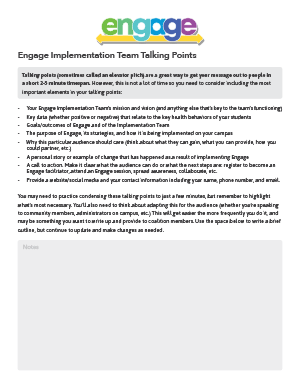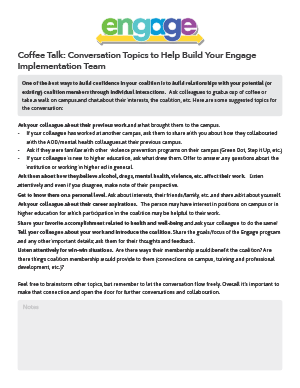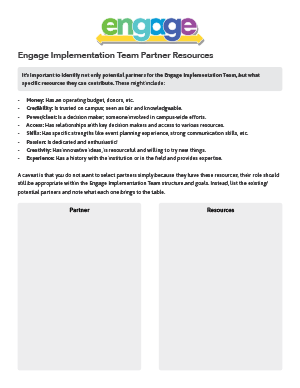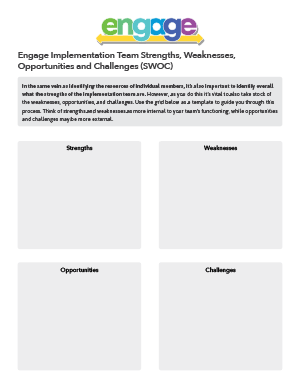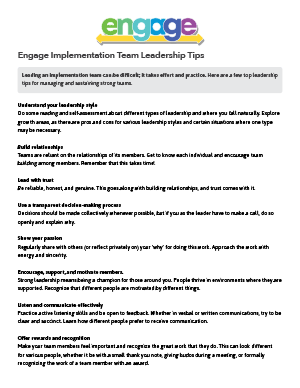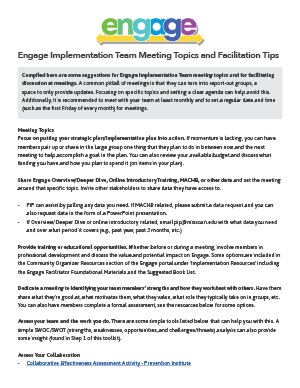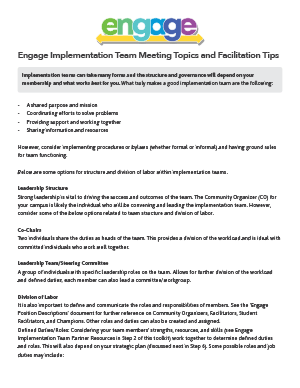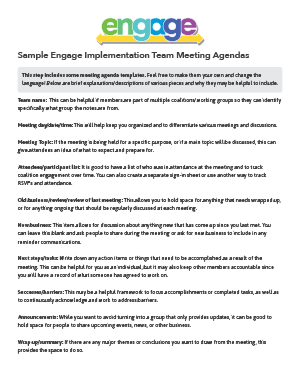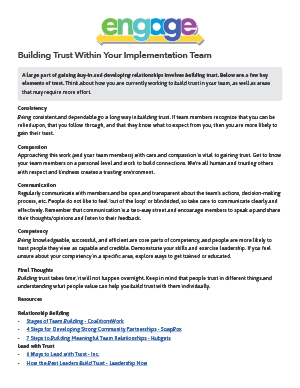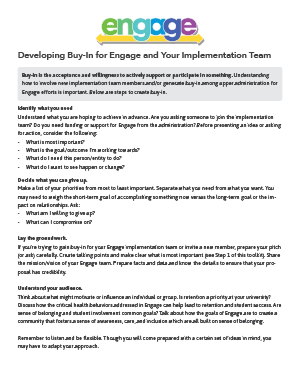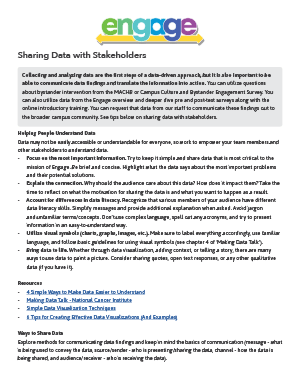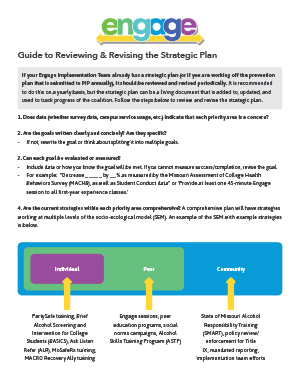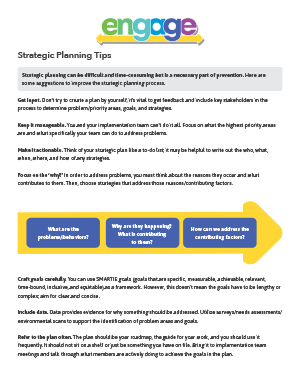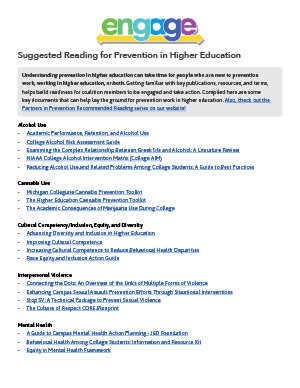
Engage: Multi Level Violence Prevention Strategy
Care. Make an Impact. Commit to Community.
Engage Implementation Team Toolkit
Prevention and health promotion in higher education is a shared responsibility. Therefore, implementing Engage on your campus will be most effective when utilizing a team. The health and well-being concerns that are addressed in Engage (alcohol and other drug issues, issues of bias and discrimination, interpersonal violence, and mental well-being) are broad and diverse, and one individual (or one entity on campus) cannot deal with these problems alone. This toolkit developed by Partners in Prevention is meant to be a helpful guide as you work to build and maintain an implementation team for Engage. You can do these steps in or out of the order listed, and some steps will occur simultaneously. Use each step as a guide when you need it rather than as a checklist that must be done one after the other. Click here to download Engage Implementation Team Toolkit Overview (Word).
- Step 1: Forming Your Engage Implementation Team
- Step 2: Determining Strengths and Resources
- Step 3: Structuring Your Implementation Team (Leadership, Meetings, etc.)
- Step 4: Encouraging Buy-In
- Step 5: How to Use and Collect Data
- Step 6: Strategic Planning
- Step 7: Raising Up Your Team Members
- Step 8: Sustaining Your Implementation Team
Step 1: Forming Your Engage Implementation Team
Step 2: Determining Strengths and Resources
Step 3: Structuring Your Implementation Team (Leadership, Meetings, etc.)
Step 4: Encouraging Buy-In
Step 5: How to Use and Collect Data
Step 6: Strategic Planning
Step 7: Raising Up Your Team Members
Step 8: Sustaining Your Implementation Team
This program is supported by the Centers for Disease Control and Prevention (CDC) of the US Department of Health and Human Services (DHHS) and is part of a financial assistance award totaling(?) $98,112 with 100% of that assistance funded by the CDC and DHHS. The contents are those of the authors and do not necessarily represent the official views of, nor an endorsement by, the CDC, DHHS, or the US Government.
PIP is partnering with MOCADSV and DHSS Office on Women’s Health on this project. Find out more about this collaboration and how our organizations have collaborated previously here.
PIP is partnering with MOCADSV and DHSS Office on Women’s Health on this project. Find out more about this collaboration and how our organizations have collaborated previously here.

